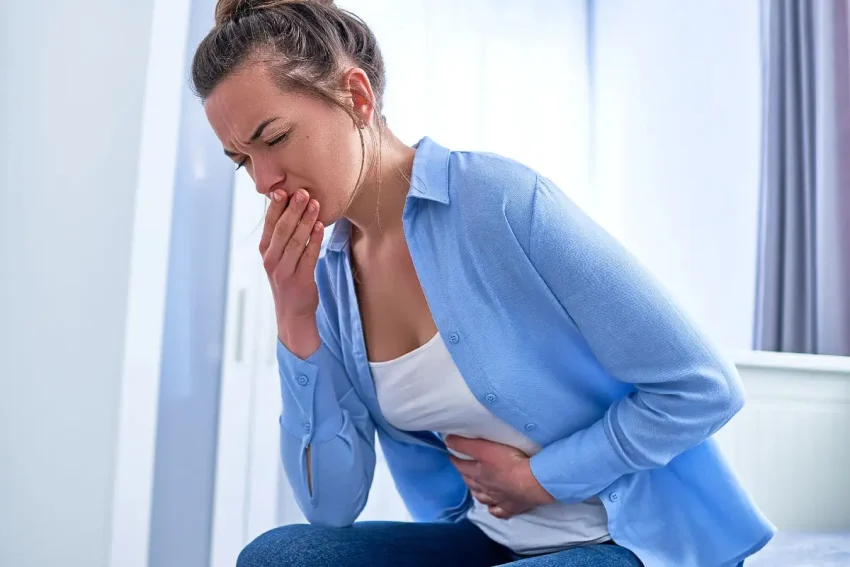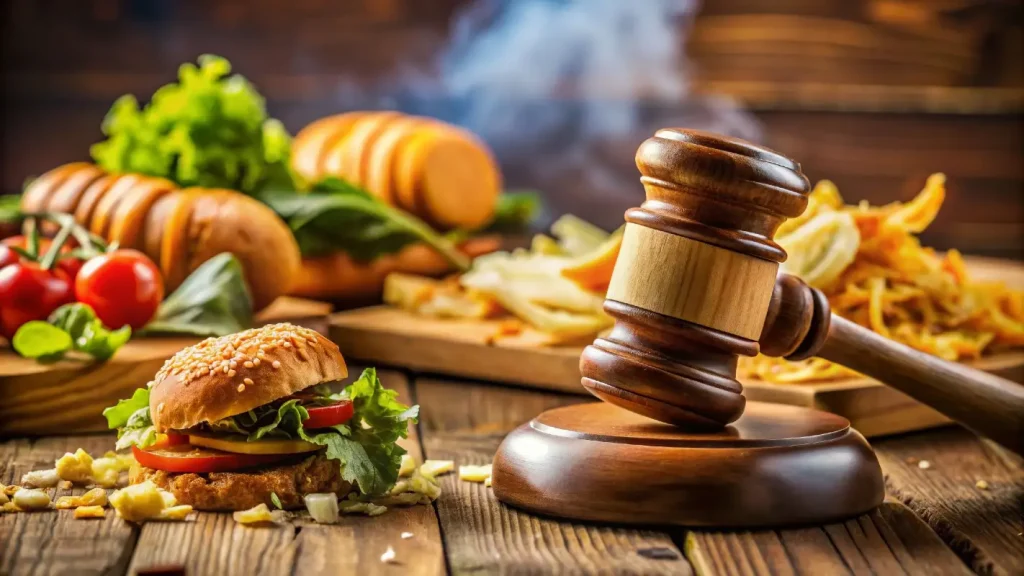When Can You Sue for Food Poisoning? A Legal Guide

Food poisoning, a common yet often debilitating illness, can arise from consuming contaminated food or drink. While many cases resolve within a few days, some can lead to severe health complications, long-term effects, and even death. When such severe outcomes occur due to the negligence of others, the question of legal recourse arises: When can you sue for food poisoning?
In this article, we’ll explore the legal avenues available to individuals who have suffered from food poisoning. Read on for the details!
Contents
What Counts as Food Positioning?
Food poisoning or foodborne illness occurs when a person becomes ill after consuming contaminated food or drink. Contamination may involve harmful bacteria like E. coli, Salmonella, or Listeria. These pathogens can enter food at many stages, from production to handling.
Common symptoms of food poisoning include nausea, vomiting, diarrhea, and abdominal pains. In more serious cases, victims may suffer from muscle aches, dehydration, or complications that require extensive medical care.
Recognizing these symptoms of food poisoning is the first step in identifying whether legal claims might be valid. This might include filing a food poisoning claim against the restaurant, grocery store, or food manufacturer involved. A food poisoning lawyer can help you understand your options and gather the evidence for a strong case.
When looking for a food poisoning attorney, opt for local providers who understand your state laws and have experience handling foodborne illness cases. For instance, if you’re a victim of Salmonella outbreaks in Los Angeles, look for a personal injury lawyer who has dealt with similar food poisoning lawsuits in your area. They’re more likely to be familiar with local health department reports, common food sources, and responsible parties.
Establishing Grounds for a Lawsuit
Before you can file a food poisoning claim, certain conditions must be met. Some of them may include the following:
You Got Sick from the Food
You must show that the food you consumed directly caused your illness. Medical attention is often necessary to get proper treatment and create medical records that link your illness to the contaminated food. Tests that identify the type of bacteria can strengthen your claim.
The Food Was Contaminated
Contaminated food is at the heart of food poisoning lawsuits. If the food was found to have harmful bacteria or was linked to other food poisoning victims, this may support your legal action. Food recalls or public health warnings can also serve as valuable evidence.
The Contamination Occurred Due to Negligence
To sue for food poisoning, you need to demonstrate that the contamination was avoidable. Negligence might include improper food storage, cross-contamination, or inadequate training among food handlers. A business or provider has a duty of care to serve safe, uncontaminated food. A breach of that duty may lead to legal consequences.
You Suffered Damages as a Result of the Food Poisoning
A successful food poisoning lawsuit depends on proving actual harm. Medical bills, time off work, emotional pain, and ongoing health issues all qualify as compensatory damages. In some severe cases, victims may also seek punitive damages if the negligence was extreme or reckless.
Who Can You Sue for Food Poisoning?
Several responsible parties could be legally accountable depending on where the contamination occurred:
Restaurants, Cafes, or Food Vendors
Dining establishments owe a duty of care to customers. If a restaurant serves undercooked meat or improperly stored dairy products, resulting in illness, it may be liable in a personal injury lawsuit. In such cases, you can seek compensation for the harm caused. Filing a complaint with the health department can also help support a negligence claim.
Grocery Stores and Retailers
Food retailers have an obligation to keep food items safe for purchase. If they knowingly sell spoiled or recalled food, they could be included in the legal action. Food poisoning claims can sometimes involve multiple defendants, especially when tracing the source of contamination.
Food Manufacturers or Suppliers
Food manufacturers must ensure their food products are free from contamination before reaching store shelves. If food poisoning is traced to a manufacturing defect or unsafe packaging, a victim may file a product liability claim against the company.
Caterers or Event Hosts
When food is served at private events, the caterer or host must ensure it’s handled and prepared safely. Poor refrigeration or improper reheating can lead to foodborne infections. If several attendees fall ill, a class action lawsuit may be appropriate.
What Legal Options Do You Have?

If you believe your illness was due to food poisoning caused by negligence, there are several legal paths to consider:
Personal Injury Lawsuit
Filing a personal injury claim allows you to seek financial compensation for economic and non-economic damages like emotional distress. Hiring an experienced attorney with knowledge of foodborne illness cases can increase your chances of success.
Class Action Lawsuit
Victims can file a class action lawsuit together if a food poisoning outbreak affects many people. This is common in cases involving defective products from a food manufacturer or food distributor.
Insurance Claim
Businesses that serve food usually carry liability insurance. Filing an insurance claim can lead to compensation without a lengthy court process. However, having legal representation ensures your claim is not undervalued or denied.
Health Department Complaint
Even if you don’t pursue financial damages immediately, reporting the food poisoning incident to your local health department can help identify the source of food contamination. This can lead to inspections and fines and help other consumers avoid the same fate.
Conclusion
When you sue for food poisoning, the path isn’t always simple, but it’s available to those who can prove negligence and harm. When it happens because someone fails to follow proper food safety practices, you have the right to hold them accountable. Whether it was a careless restaurant, a negligent food manufacturer, or a grocery store selling tainted goods, you shouldn’t have to bear the burden alone.



